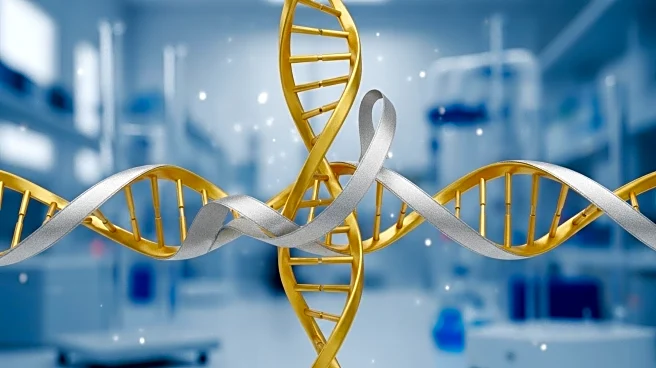What's Happening?
Recent Nobel Prizes in chemistry and physiology or medicine have highlighted groundbreaking discoveries. The Nobel Prize in Chemistry was awarded for advancements in metal-organic frameworks, while the Nobel Prize in Physiology or Medicine recognized achievements in peripheral immune tolerance. These scientific breakthroughs are complemented by significant developments in gene therapy for Huntington's disease. uniQure's AMT-130 therapy has shown promising results in early clinical trials, potentially slowing disease progression by up to 75%. Additionally, Arbor Biotechnologies and Chiesi Group have announced a collaboration to develop gene editing therapies targeting rare liver diseases, with a potential investment of up to $2.1 billion.
Why It's Important?
The Nobel Prize recognitions underscore the importance of scientific innovation in addressing complex health challenges. The advancements in gene therapy for Huntington's disease offer hope for patients suffering from this debilitating condition, potentially transforming treatment approaches. The collaboration between Arbor Biotechnologies and Chiesi Group signifies a substantial investment in the development of therapies for rare diseases, which often lack sufficient research funding. These developments could lead to improved patient outcomes and stimulate further research in genetic engineering and biotechnology, impacting the healthcare industry and patient care standards.
What's Next?
The promising results from uniQure's AMT-130 therapy may lead to expanded clinical trials and eventual regulatory approval, offering new treatment options for Huntington's disease patients. The collaboration between Arbor Biotechnologies and Chiesi Group is expected to advance gene editing technologies, potentially leading to new therapies for rare liver diseases. Continued investment and research in these areas could drive further innovation in genetic engineering, influencing future medical treatments and healthcare policies.
Beyond the Headlines
These scientific advancements raise ethical considerations regarding gene editing and its implications for human health. The potential to alter genetic material to treat diseases poses questions about long-term effects and accessibility. As these technologies develop, discussions around regulatory frameworks and ethical guidelines will become increasingly important to ensure responsible use and equitable access to new treatments.









